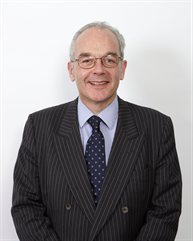Two members of SI Gosport, Fareham and District, Regional PAC Officer Christine White and Pat Caulton met Simon Hayes, Police and Crime Commissioner for Hampshire, and were able to spend about an hour discussing women’s offending and other related matters.
They explained that as Soroptimists they had a special interest in improving women’s lives and that is why they were undertaking this project to raise awareness of the causes and results of women being sent to prison.
Women offenders comprise only five per cent of the prison population and women’s offending is different from men’s and should be treated differently. In view of the size of the problem, improving women’s treatment and their lives is achievable at a reasonable cost.
There is cross-party support for changing the way women are treated but there appears to be no political will.
“Now that Soroptimists are involved we will persist in keeping the matter on the agenda,” said Pat.
Mr Hayes said that as far as he was aware women were not treated differently from men and no special measures were taken in their treatment at police stations in Hampshire.
Christine and Pat pointed out that the majority of crimes committed by women are non-violent and community sentences can be much more effective for the following reasons:
- Offenders’ children need not experience the trauma of being separated from their mother, friends and family with consequent poor outcomes. Subsequent generations would not be affected by the separation. There is a public cost to the community of keeping children in care.
- There is compelling evidence that community sentencing results in lower rates of re-offending.
- The cost of keeping a woman in prison is some £38,000 per annum and for a community sentencing order just £14,000. It is a no brainer.
Asked whether he had knowledge of Women’s Centres – Mr Hayes knew of just one in Camden that was a one stop shop. Christine mentioned the pop up women’s centres set up by the probation service. There appeared to be no others in Hampshire.
There was little that Mr Hayes could do about sentencing – that was matter for the Ministry of Justice but he did have contact with justice officials as part of his role and can bring these ideas to them if he was persuaded. He mentioned that the prison estate had a number of buildings that were no longer needed which could be used.
Women offenders often have special needs, may have been in care, have mental health problems and be affected by domestic abuse. Providing support and oversight of community sentences in local Women’s Centres would be a more effective way to deal with their offending behaviour and preventing further offences.
Mr Hayes confirmed that all Police and Crime Commissioners meet regionally once every six weeks and nationally once a quarter.
Christine and Pat said that reducing women’s imprisonment and improving their treatment was a national project for Soroptimists and that he could expect that other Police and Crime Commissioners over the country will have been meeting with other Soroptimists in their area.
They then started to ask the questions set out in the Soroptimist’s UKPAC questionnaire and Mr Hayes asked for copy and promised to complete it.
_________________________________________________________________________________________________________________________________________
About Simon Hayes

Simon Hayes is the first ever Police and Crime Commissioner for Hampshire, having been elected in the November 2012 elections. His role is to oversee and scrutinise policing in Hampshire and the Isle of Wight, and will collaborate with others in the criminal justice sector to produce an efficient and effective system.
Prior to the election, Simon was the Chairman of Crimestoppers for Hampshire and the Isle of Wight, the charity dedicated to preventing crime. He is also a past Chairman of Hampshire Police Authority, the organisation that the Police and Crime Commissioner replaced, and has been the Leader of New Forest District Council and a County Councillor for Hampshire.
Simon studied criminology and social policy, for which he holds a BSc degree, and has worked as a criminologist with an interest in preventing re-offending, particularly associated with crimes linked to drug and alcohol abuse.
_________________________________________________________________________________________________________________________________________

